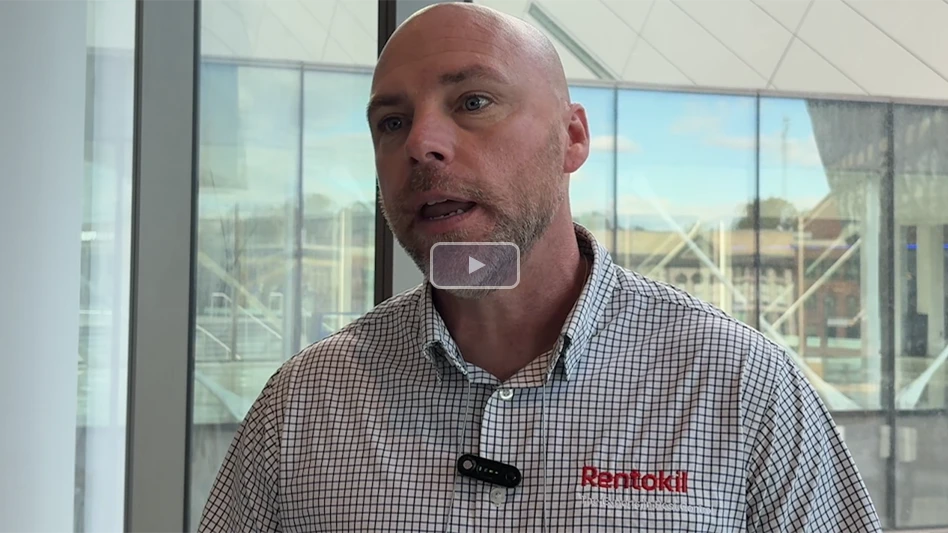
Editor’s note: The research cited in this article was conducted by Global Prairie, a full-service digital marketing and advertising agency, on behalf of the Professional Pest Management business of Bayer, within the company’s Environmental Science unit. An online survey of pest control operators in the United States, India, Brazil and Italy was conducted April 23-June 1, 2015. The U.S. survey results are reflected in this coverage. The goal of the research was to assess the awareness and attitudes of pest control operators toward emerging issues and trends, in an effort to capture key challenges and opportunities in the professional pest management industry. This article is the second of a four-part series reporting on this data.
When it comes to finding candidates to fill open service technician or sales positions, pest control company owners and hiring managers are often left scratching their heads asking, “Where have all the good candidates gone?”
Respondents to the Bayer Global PCO Survey agreed with that sentiment and rank recruiting and retaining good employees as the biggest challenge their businesses will face in the next half-decade.
The hiring process is approached differently by companies across the United States and is impacted by location, client base (i.e., residential or commercial), company size and internal culture.
For Brian Schoonmaker, president of Capitol Pest Management in Bethesda, Md., right outside of Washington, D.C., overcoming the challenge of finding and retaining quality employees starts and ends with establishing the right culture.
“Finding and keeping good employees is no doubt a challenge,” says Schoonmaker. “At Capitol we have worked hard to create a culture that not only attracts quality hires but allows us to keep them long-term.”
What is the magical formula that Schoonmaker uses? The formula includes a strong dose of education and training, and establishing a clearly defined, attainable career path for new hires to follow.
“We want to identify where a new employee fits best within the organization whether that is as a service technician, supervisor or in sales,” says Schoonmaker. “We also want to find out what makes them tick and what they need out of their job.”
Schoonmaker meets with new hires during the onboarding process and lays out for them the company’s philosophy on career development.
Capitol Pest Management expects technicians to complete the Univar Master Technician training course and offers incentives including a pay raise and the ability to earn commission upon completion.
“We are very honest with new hires and tell them in order to advance you must put forth the effort,” says Schoonmaker. “We will support them and help them meet their goals if they make the commitment.”
Schoonmaker came to Capitol after a management career with well-known retailers including Brooks Brothers, Macy’s and Target and he brought with him a deep knowledge in human resources, career development and teamwork.
EMPLOYEE TURNOVER. The measure of whether a company’s recruiting and retention efforts are working can be easily measured in one statistic — employee turnover. How is it working at Capitol?
Schoonmaker reports the company has only lost one employee they wanted to keep in the last five years.

“We hold our employees to a high standard and we work hard to keep them,” says Schoonmaker.
The company’s managers meet annually to evaluate the current team and make sure the right pieces are in place. They also review training programs to make sure the company is doing everything it can to help employees advance their careers within the pest control firm.
“We want to maintain the family atmosphere the company was built on and our investment in training and career development is more about people and not just numbers,” says Schoonmaker.
The recruitment piece of the puzzle does concern Schoonmaker, however, as he looks to the future. He says it is difficult to get candidates with limited exposure to the industry to respond to job listings and commit to making pest management a career.
“We recruit year-round because we want to maintain good bench strength but we may go through 50 job applications to find two or three candidates who we would actually bring in for an interview,” says Schoonmaker, who looks for candidates with strong communication skills and a solid work history.
When asked about the impact millennials will have on industry hiring practices in the future, Schoonmaker says the industry will have to adjust its approach.
“Our managers will have to think and act differently when connecting with millennials,” says Schoonmaker. “It will be about finding a balance between creating an attractive career path for them and making sure we follow our game plan.”
Another area of concern is the impact new and proposed employment regulations could have. The push to raise the minimum wage to $15 and a recently passed mandate in Montgomery County (Md.) that will allow employees to accrue paid time off to provide care for themselves or for family members in cases of illness or preventive medical care, could prevent small businesses like Capitol from expanding the number of entrylevel positions.
The author is an editorial contributor to PCT magazine and a partner at B Communications, Mentor, Ohio.

Explore the January 2017 Issue
Check out more from this issue and find your next story to read.
Latest from Pest Control Technology
- Forty-Seven Percent of PCOs Increased Mental Health Care Benefits, Poll Finds
- Samantha Malone on Growing Confidence, Building Relationships Through ELP
- Surge in Pest Populations Expected This Spring, NPMA Bug Barometer Finds
- CoverAll Pests Celebrates 10 Years in Business
- ICUP 2025 Program Announced
- Aedes Mosquito Killers Now Available in the U.S.
- ProSource Pest Solutions Opens New Location in Waterbury
- Fruit Flies





